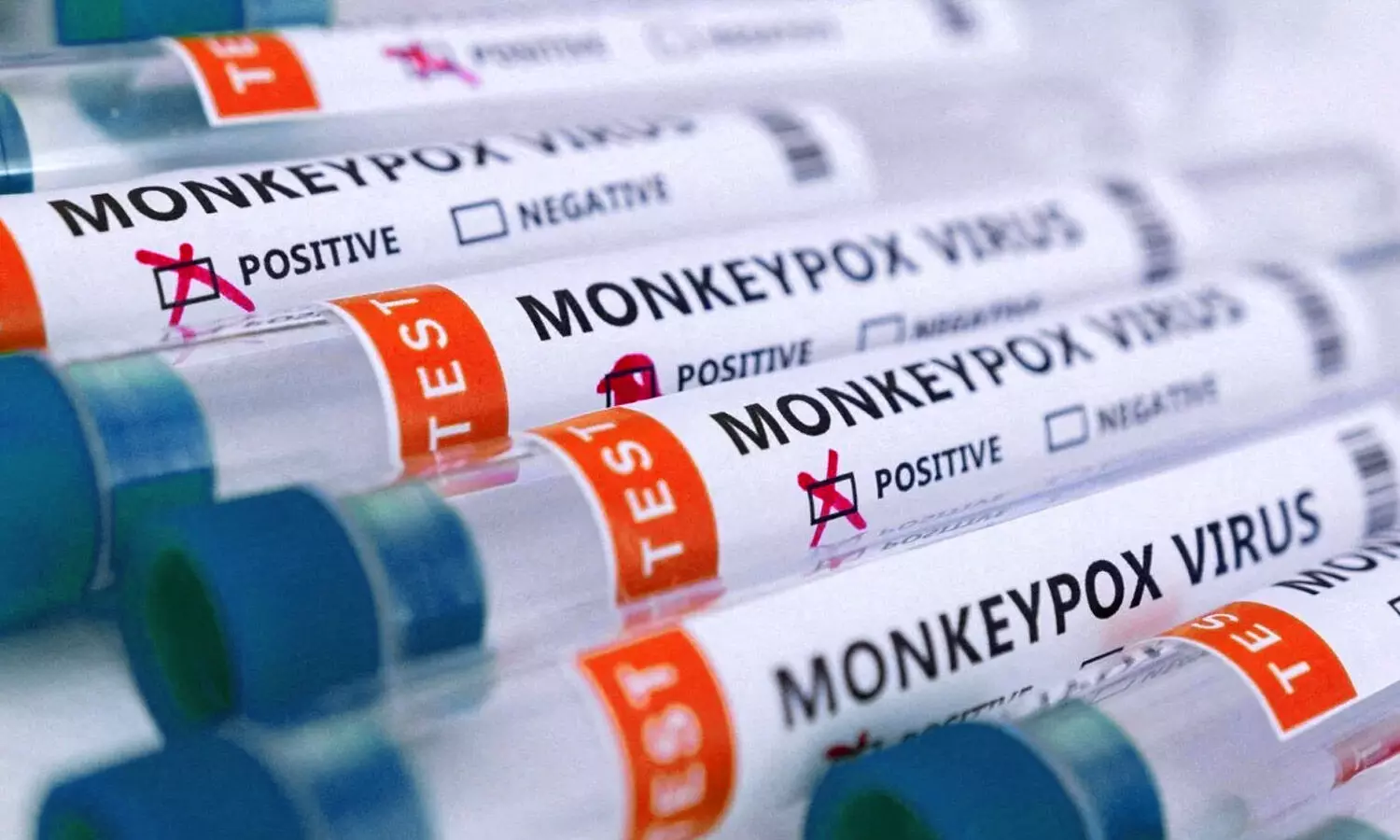Mpox: Its Symptoms, Prevention, and Treatment
A virus causes mpox, also known as monkeypox, a rare disease that resembles smallpox. It is mostly found in parts of Africa, though it has also been observed globally.
image for illustrative purpose

What is mpox?
A virus is the cause of the uncommon illness known as mpox (formerly monkeypox), which causes rashes and flu-like symptoms. It belongs to the same genus as Orthopoxvirus, the more well-known cause of smallpox. Close contact with an infected person can spread the mpox virus. It is also transmissible from infected animals. Although mpox has no known cure, it typically goes away on its own.
The mpox virus is known to have two types (clades): Clade I, which originated in Central Africa, and Clade II, which originated in West Africa. Clade IIb, a subtype of the milder West African clade, is the cause of the current global outbreak.
To what extent is mpox common?
Mpox occurs rarely. However, the number of cases is rising in Africa and areas where these infections have never been reported before.
Is mpox found anywhere else?
MPOVX was primarily observed in Africa for many years. However, it can also be found sporadically in other nations, like the US.
For instance, an American citizen who had travelled from Nigeria to the United States was discovered to have mpox in the summer of 2021. Then, epidemics spread to parts of Europe, the Americas, and Australia in 2022, which were not in Africa.
Who is affected by mpox?
Mpox can affect anybody. Children under the age of fifteen account for the majority of cases in Africa. Though cases occur in non-MSM individuals, the disease seems to affect men who have sex with men (MSM) more frequently outside of Africa.
What are the signs and symptoms?
It might take a few days or even weeks following exposure for you to start experiencing symptoms.
Symptoms of mpox include:
- Fever
- Rash
- Swollen lymph nodes
- Chills
- Headache
- Muscle aches
- Fatigue
Initially, the rash appears painful, with red, flat bumps. Blisters form from those bumps and fill with pus. The blisters eventually turn crusty and peel off. The entire process may take between two and four weeks. Anus, penis, vagina, hands, feet, mouth, and face can all develop sores. The symptoms of mpox are not always present in every person. You may experience symptoms in a variety of ways, such as:
- Just a rash with no other symptoms, or later the emergence of additional symptoms.
- Flu-like symptoms followed by a rash. Some people never even get a rash.
- Some people may only have a few bumps or blisters, while others may have a widespread rash.
You might not be aware that you have mpox. Through prolonged close contact, you may still be able to spread the infection to others, even if you don't exhibit many symptoms.
How does mpox spread?
When you encounter an animal or someone infected with the virus, mpox can spread.
When you come into contact with an infected person's sores, scabs, respiratory droplets, or oral fluids—typically through close, intimate situations, you can contract the infection from that person. This is known as person-to-person spread (transmission). Although investigations are ongoing, scientists are unsure of the virus's transmission mode. Animal-to-human transmission happens when an animal bites, scratches, or breaks the skin. It can also occur when an animal comes into direct contact with an infected animal's blood, bodily fluids, or lesions (sores) from the pox. Additionally, contaminated items such as clothing, bedding, and other linens used by an infected person or animal can spread the mpox virus.
How can mpox be diagnosed?
Due to the rarity of mpox, medical professionals may initially rule out other rash conditions like chickenpox or measles. However, enlarged lymph nodes typically set mpox apart from other pox infections.
Your healthcare provider obtains a tissue sample from an open sore (lesion) to diagnose mpox. After that, it's sent to a lab for genetic fingerprinting, polymerase chain reaction, or PCR testing. You might also need to provide a blood sample to test for the mpox virus or antibodies produced by your immune system.
How can mpox be prevented?
Vaccination against mpox helps prevent its spread if you are susceptible to it. Reducing contact with infected animals and preventing person-to-person transmission are two more measures.
What is the treatment for mpox?
Currently, no antiviral medications are authorised for the treatment of mpox. Doctors recommend antiviral medications like tecovirimat or cidofovir if you're extremely ill. Researchers still need to learn more about how well these medications work for mpox, even though they are approved to treat other viral infections like smallpox.

